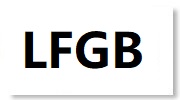European
-
-
German lfgb test
CTS
One stop testing and certification service in all fields
24-hour service line: +86-139 2959 4349
Switchboard: +86-0769-2236 0704
Email: Peter@cts -cn. com
Basic introduction
In September2005, the new German food and diet law lfgb replaced the food and daily necessities law LMBG (lebensmittel- und futermittelgesetzbuches). It is also known as the law on the administration of food, tobacco products, cosmetics and other daily necessities. It is the most important basic legal document on food hygiene management in Germany and the guideline and core for the formulation of other special food hygiene laws and regulations. However, it has also been modified in recent years, mainly to match with European standards. The regulations have made general and basic provisions on all aspects of German food. All food in the German market and all food related daily necessities must comply with the above basic provisions.
Product range
Lfgb test is aimed at all materials, including products produced by the latest technology, such as chromium coating of barbecue rack, temperature resistance test of Teflon coating of cooking pan, silicone sealing ring test in kettle, etc. The fields usually involved include ceramics, synthetic plastics, polyvinyl chloride, plasticizers, paper products, leather, textiles, cosmetics, tobacco and so on The products involved include: toaster, sandwich stove, electric kettle and other electrical products in contact with food; Food storage supplies; Strengthen kitchen utensils such as glass kitchen board and stainless steel pot; Bowl, knife and fork, spoon, cup and plate tableware; Clothing, bedding, towels, wigs, false eyelashes, hats, diapers and other sanitary supplies, sleeping bags, shoes, gloves, watch straps, handbags, wallets / wallets, briefcases and chair covering materials; Textile or leather toys and toys containing textile or leather clothing; Directly used yarns and fabrics; Various cosmetics and tobacco products.
Test items
In general, articles 30 and 31 of the food and daily necessities law of lfgb Germany include the following test items:
1. preliminary inspection of samples and materials
2. Sensory evaluation of odor and taste transfer
3. Plastic samples: Test of transferable components and test of precipitable heavy metals
4. Metal: Test of composition and precipitable heavy metals
5. Silicone: Test for transferable or volatile organic compounds
6. Special materials: chemical hazards are tested according to the German chemical law
Other test items included in the regulation include:
1. detection of some azo dyes used in textiles, leather, polyester fiber and other daily necessities.
2. testing of harmful chemical components and heavy metals in cosmetics
3. Testing of harmful components in tobacco
Important changes in new regulations:
-In German law, EU directive No. 178 / 2002 (food safety requirements, responsibilities of food and catering operators) is implemented
-Tobacco is outside the scope of the new lfgb, and temporary regulations on tobacco will be issued
-The prohibition scope of misleading statements on materials and commodities in contact with food is expanded
-There are no significant changes in the safety testing of materials and commodities in contact with food

